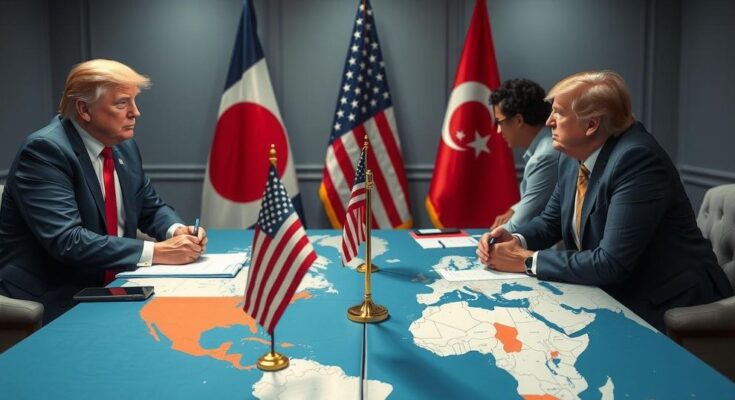President-elect Donald Trump has made significant statements regarding potential trade wars with Canada and Mexico, the acquisition of Greenland, and rekindling U.S. control over the Panama Canal, suggesting a broader strategy for U.S. influence in the region.
In recent weeks, prior to his inauguration for a second term, President-elect Donald Trump has made provocative comments regarding trade relations with the United States’ closest neighbors. He has hinted at the possibility of trade conflicts with Canada and Mexico, speculated on the acquisition of Greenland, and expressed intentions to bring the Panama Canal under U.S. control. Furthermore, he proposed the idea of making Canada the 51st state, suggesting a broader strategic vision behind these statements that extends beyond mere rhetoric.
President-elect Donald Trump’s remarks reflect an ambition to reshape America’s foreign relations, particularly with neighboring countries. His administration’s approach marks a significant shift towards an assertive stance on trade issues, raising concerns about the potential implications for bilateral relationships and border diplomacy. With trade wars on the horizon and territorial aspirations revealed, Trump’s intentions for governance appear to indicate a desire for greater U.S. influence in the region.
President-elect Trump’s recent assertions regarding Canada, Greenland, and Panama underscore a broader agenda aimed at altering America’s economic and territorial landscape. By threatening trade wars and suggesting radical geopolitical changes, these statements highlight the administration’s potential focus on expanding U.S. dominance and influence across neighboring nations. The coming term may see significant changes in diplomatic relations shaped by these bold proclamations.
Original Source: www.washingtonpost.com




